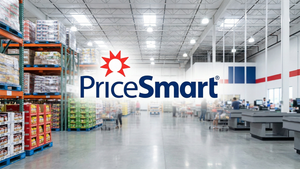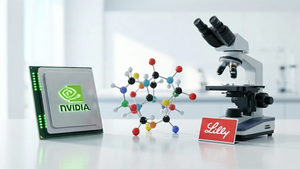Linux Foundation Mentorship Program 2025: Everything You Need to Know
The Linux Foundation Mentorship Program 2025 is one of the best opportunities for aspiring developers, open source enthusiasts, and students who want to contribute to projects that shape global technology.
Alongside this, many learners also take certifications with discounts like this 40% off Linux Foundation coupon, making it easier to combine training with mentorship.
The program not only gives mentees real-world coding experience but also pays stipends, offers direct interaction with maintainers, and helps participants become part of the wider open source ecosystem.
Whether you are a beginner or someone with prior contributions, the mentorship program creates a structured path to learning and contributing effectively.
What Is the Linux Foundation Mentorship Program?
The mentorship program, also known as LFX Mentorship, pairs developers with experienced project maintainers.
These mentors guide mentees through real tasks such as fixing bugs, building features, writing documentation, or testing modules. Unlike short workshops, this is a multi-week commitment where mentees work like contributors, submit pull requests, get feedback, and learn professional development workflows.
Every year, the program is offered in three main cycles: Spring, Summer, and Fall. Each cycle lasts about three months for full-time participants or up to six months for part-time.
During this time, mentees gain technical and community experience that helps them in both open source and career paths.
Linux Foundation Mentorship Program 2025
The 2025 mentorship program is packed with new and exciting projects. Many of them focus on cloud native computing, artificial intelligence, Kubernetes, networking, security, and of course, the Linux Kernel mentorship program.
Each term has its own set of available projects, and mentees can apply for those that align with their interests and skills.
In Summer 2025, projects include topics like edge computing, container orchestration, AI integration, and performance improvements for the Linux kernel.
The Fall 2025 session will likely introduce more security and automation-related projects, reflecting the growing demand in the open source community.
The structure remains consistent: mentees submit an application, get paired with a mentor, work on assigned goals, and submit progress reports.
Successful completion means not only growth in technical skills but also payment of the stipend.
Linux Foundation Mentorship Program Stipend
One of the biggest attractions of the program is the stipend. The Linux Foundation ensures that mentees are compensated fairly for their time and contributions.
- The stipend ranges from USD 3,000 to USD 6,600 depending on the country of residence and purchasing power parity adjustments.
- Payments are usually split into two parts: one after the mid-term evaluation and the other after final evaluation.
- The stipend ensures mentees can focus fully on contributing without worrying too much about income during the term.
This financial support makes the program accessible to students and early career professionals worldwide.
Linux Kernel Mentorship Program
The Linux Kernel mentorship program is one of the most respected tracks. The Linux kernel is a massive project with millions of lines of code, and contributing without guidance can feel overwhelming.
Under the mentorship program, beginners learn how kernel development works: mailing list communication, patch submissions, and subsystem contributions.
Mentors in the kernel track are usually long-time contributors, which means mentees get direct exposure to high-quality coding practices and reviews.
This experience builds confidence to continue contributing long after the mentorship ends.
Linux Foundation Mentorship Program for Beginners
If you’re new to open source, don’t worry. The program is designed to welcome beginners as well. Here are some points to keep in mind:
- Many projects label certain issues as “good first issues,” making it easier for new developers to start contributing.
- The application process doesn’t demand a long resume; instead, it looks for enthusiasm, basic GitHub familiarity, and willingness to learn.
- Mentors guide beginners step by step, which means you don’t need to be an expert before applying.
By the end of the program, even first-timers can feel confident about contributing independently.
Linux Foundation Mentorship Program GitHub
Most projects under the mentorship program are managed on GitHub. Mentees work with repositories, pull requests, code reviews, and issues as part of their daily tasks.
This experience matters because GitHub workflows are the standard in both open source and professional software development.
Mentees learn not only coding but also collaboration, how to review others’ code, how to handle issues politely, and how to manage feedback. These skills remain useful in every future job or project.
How to Apply for the LFX Mentorship Program?
Applying to the Linux Foundation Mentorship Program is straightforward if you follow the steps carefully:
- Create an LFX profile on the Linux Foundation’s mentorship portal.
- Browse available projects by term and interest area.
- Check eligibility requirements for each project. Some may ask for knowledge of C, Go, or Kubernetes, while others are open to anyone.
- Submit your application, including your resume, a short motivation statement, and links to your GitHub contributions if available.
- Wait for results. If selected, you will be assigned a mentor and start your journey.
Applications usually open a few weeks before each term begins, so keeping an eye on the timeline is important.
Is the Linux Foundation Mentorship Program Free?
Yes, the program is completely free to join. You don’t pay any registration fees or tuition. The only requirement is your time, commitment, and willingness to learn.
Selected mentees even earn stipends, which means the program supports you financially while you contribute.
For those who want to contribute without applying formally, projects often accept volunteer contributors, but the structured mentorship adds focused guidance and evaluation.
Why You Should Consider It in 2025?
The Linux Foundation Mentorship Program 2025 is more than just a learning opportunity. It is a stepping stone into the world of open source. Here are reasons to consider it:
- Get real-world experience with open source projects.
- Earn a stipend while learning and contributing.
- Connect with mentors who are leaders in their projects.
- Build a GitHub profile that stands out to employers.
- Gain confidence to contribute independently after the program ends.
For those also planning certifications, you can save money with discounts such as this linux foundation cka coupon code, which helps when preparing for Kubernetes exams alongside your mentorship journey.
Final Thoughts
The Linux Foundation Mentorship Program 2025 combines professional growth, community interaction, and financial support into one package. It’s accessible to beginners, valuable for experienced contributors, and beneficial for anyone aiming to make a mark in open source.
Whether your goal is to contribute to the Linux kernel, work on Kubernetes, or join cloud-native projects, this mentorship opens doors that few other programs can.
If you want to learn, code, and grow in a supportive environment while getting paid for it, the Linux Foundation Mentorship Program is worth your application this year.
More News
View More




Recent Quotes
View MoreQuotes delayed at least 20 minutes.
By accessing this page, you agree to the Privacy Policy and Terms Of Service.
